
Whether you wash up by hand or rely on a dishwasher, one consistent item is a kitchen towel. But did you know that it could be harboring dangerous bacteria such as E.coli?
Luckily, this cross-contamination risk is avoidable with some smart cleanliness tips that ensure a sanitary kitchen and more hygienic hands.
Here, food safety experts and toxicologists break down the risk and how to clean a kitchen to avoid it.
The potential dangers of kitchen towels
No matter how closely you follow disinfecting golden rules in a kitchen, if you neglect changing your kitchen towel often enough, you are at risk of harmful bacteria such as E.coli and Salmonella spreading around your cooking space.
Mark McShane, food hygiene expert at Food Hygiene Certificate, explains, ‘Cross-contamination is one of the most common causes of food poisoning at home, and one of the easiest ways it happens is via tea towels. People dry their hands after touching raw meat, then use the same towel to dry plates, cutlery, or even children’s cups.
‘Food poisoning doesn’t always come from undercooked food,’ he adds. ‘Sometimes it comes from clean-looking cutlery dried with the wrong towel. A simple switch in habits can prevent weeks of illness.’

The science backs this up.
One study on bacterial occurrence in kitchen hand towels found that ‘Coliform bacteria were detected in 89.0% and E. coli in 25.6% of towels. The presence of E. coli was related to the frequency of washing,’ later adding that, ‘ numbers [of E. coli] on towels were lower the more often they were washed.’
Ultimately, ‘The researchers recommended frequent replacement or decontamination of kitchen towels.’
How to avoid a cross-contamination risk

According to Dr. Shania C. Knighton, research associate professor from the Frances Payne Bolton School of Nursing at Case Western Reserve University, avoiding some common kitchen cleaning mistakes is the best way to avoid bacterial growth on towels, starting by breaking some bad cleaning habits that could be spreading germs.
1. Use separate towels
One thing people with clean kitchens always do is have several kitchen towels out for use at one time. Dr. Knighton reveals that she always uses separate cloths for hands, dishes, meat juice, and appliances.
This might seem excessive, but keeping the towels separate helps to prevent contamination between surfaces (and even between rooms).
This pack of ‘Days of the Week’ kitchen towels, from Target, is perfect for reminding you to change them out regularly. Alternatively, these Multi-Color Simpli-Magic Kitchen Towels, from Amazon, can help you to color-code your cleaning to prevent contamination.
2. Wash towels regularly in hot water
As the study suggested, washing towels the right way is the next vital step in preventing bacterial contamination.
Dr Knighton explains, ‘Kitchen towels should be washed daily or every few days and never left sitting dirty. I wash mine in hot water with soap or let them soak in vinegar for 10 to 15 minutes and rinse them thoroughly, or I microwave them after rinsing out any chemicals.’
Washing towels with vinegar not only makes them softer and keeps them absorbent, but it can also help to kill mold in fibers and banish bad kitchen smells, too. The Great Value White Vinegar, from Walmart, comes in a large 128fl. oz. bottle suited for use all over the home.
3. Allow towels to dry properly
Although balling a towel up and tossing it on the counter is the quickest way to finish chores, you must hang them to dry correctly between uses, Dr. Knighton urges.
‘I always hang towels, so they dry completely and never leave them flat on a surface to dry.’
Using adhesive wall hooks, from Walmart, allows you to space towels out when hung up between uses, preventing cross-contamination. Having used these hooks in my own home, I can attest to their enduring adhesion, especially on tiles, so your towels don’t end up on the floor.
4. Disinfect correctly
Disinfecting your kitchen after cooking is a must if you want to avoid cross-contamination. Cleaning counters, washing your hands, and washing dishes correctly can go a long way in removing bacteria before it has a chance to hit your towels.
Dr Knighton says, ‘For raw meat spills, I use single-use paper towels [such as Bounty from Walmart] first. After wiping, I spray the area with disinfectant, let it sit for the full contact time, and then clean it up.
‘People make the mistake of not reading the back of their labels for proper contact time for the disinfectant to sit on the area being cleaned,’ she adds. ‘If you spray and rush wiping, you do not give the solution enough time to kill the germs. The only time something kills 99.999% of germs as advertised is if you use it properly.’
Besides negating this cleaning mistake that is making you sick, you should wash your hands in hot water with a quality hand soap, such as Dial Foaming Antibacterial, from Target, to kill germs before drying them with a kitchen towel.
As for dishes, hand wash dishes in very hot water with good soap (such as Dawn from Walmart), wearing rubber gloves such as the O-Cedar gloves from Target to protect your skin. Use a silicone scrubbing brush from Walmart to avoid potential contamination from dirty kitchen sponges.
Otherwise, run your dishwasher on a sanitizing cycle with the correct detergent. We like the AspenClean dishwasher pods, from Amazon, as they are free from harsh chemicals and help to reduce plastic when cleaning your home.
What to shop
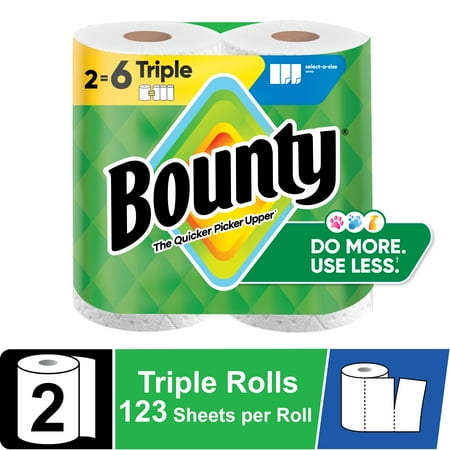
Paper towels are the safer option for removing surface dirt and first disinfecting a surface to avoid towel and cloth contamination.
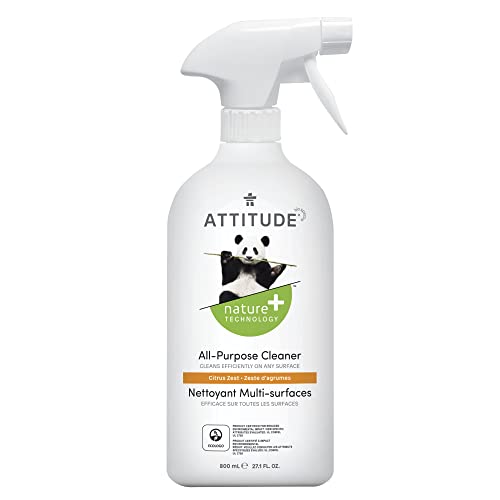
The Environmental Working Group (EWG) has certified Attitude all-purpose spray as non-toxic, meaning it contains no harsh chemicals or artificial compounds, making it safer for use in your kitchen.
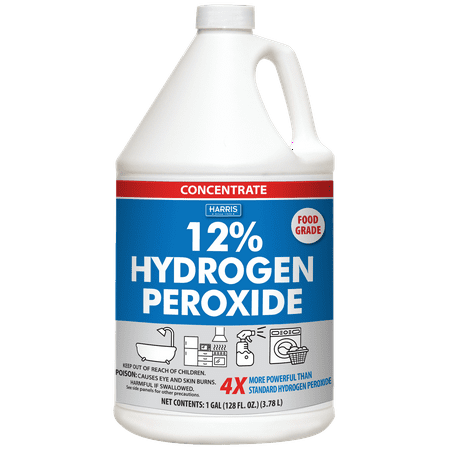
Hydrogen peroxide is a better alternative to commercial disinfecting sprays for food prep surfaces, as it does not contain any potentially toxic chemicals that you should avoid ingesting. Always wipe away with a damp cloth after use, however.
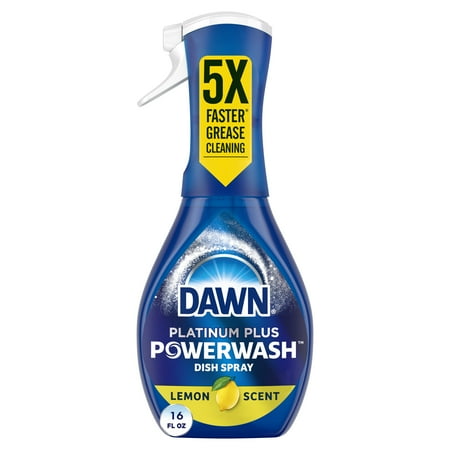
With a fresh lemon scent and a concentrated soap formula, Dawn Powerwash breaks down grease to limit how much you need to scrub, be it on surfaces or dishes.
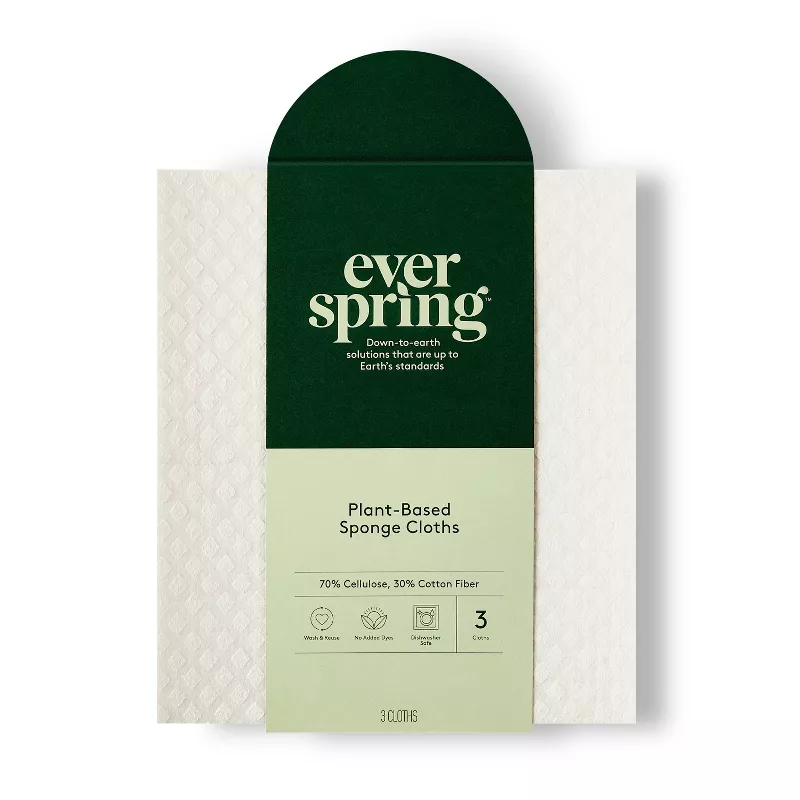
Sponge cloths are plant-based, meaning they are free from plastics and decompose in compost heaps in around 10 months, making them an eco-friendly, hygienic alternative to traditional sponges and paper towels. They can also be quickly disinfected on the top shelf of your dishwasher between uses.

Seventh Generation Free & Clear Dishwasher Detergent Packs have an enzyme-rich formula that cuts through tough grease and food residue without fragrances, dyes, phosphates, or chlorine.
Meet the expert
Although this might sound like a good argument for hitting every surface in your kitchen with disinfectant, there are some things you should never clean with disinfectant wipes to avoid toxic exposure and damage to surfaces.







